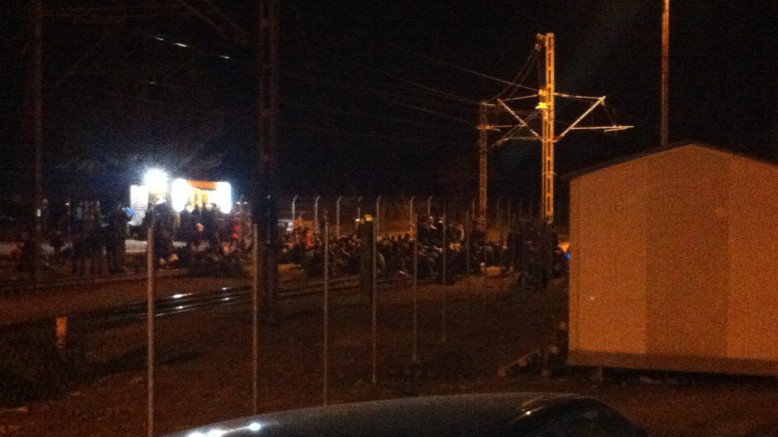On the 20th of February the police authorities of the states making up the ‘humanitarian corridor’ introduced a single biometric registration document for refugees wanting to enter the corridor. This document is now being issued at one single point on the whole route – the Greek-Macedonian/FYROM border – restricting and controlling the access to the corridor even further. Additionally, it is only being given to the people who can present a valid passport or ID.
As a result of this new policy, chaos has unfolded at numerous border crossings where people have become stuck in an administrative no man’s land. 617 Afghans remain stuck in Tabanovce, Macedonia at the time of writing. Whilst in Dimitrovgrad, on the night of the 20th of February a group of 40 people were denied registration papers by the Serbian authorities. They took a bus to Presevo were they were again refused. They then travelled to Sid, with no papers or passports: it is unclear how these cases are going to be dealt with now on the route. The new measures are certainly designed to criminalise and banish access to the corridor to those arriving from any other point than Idomeni.
At the Greek-Macedonian/FYROM border police have started narrowing down even further the nationalities who are able to enter the corridor as Afghanis have been removed from the nationalities allowed to travel onwards. Now, only Syrians and Iraqis are being issued the new travel document. In the joint statement released after the press conference of the police chiefs of Austria and the Balkan countries, only Syria and Iraq are mentioned as examples of provenance countries for refugees deemed worthy of international protection. This points towards an explanation to the new racist and illegal segregation which is being implemented at the entry to the corridor.
It remains to be seen now, how such implementations can effectively be held out in the next few days. With new arrivals at the islands higher than they have been in the past days and Afghanis constituting a large number of these, it can be predicted that large amounts of people – including many families with young children – will become stuck at the northern border of Greece. We expect the struggle against these racist and illegal measures to start very soon.
22.00: Of the several thousand people who have been waiting at the newly built camp at Polykastro gas station, around one thousand people started to walk this afternoon towards the border camp in Idomeni. The last groups arrived there around 10pm.
This shows that people do not bow to the decisions of European bureaucrats and policy makers. The authorities’ strategy to avoid a similar scenario as the one which took place in Idomeni in November/December 2015 is not working out. Keeping big crowds of people away from the border, especially people who will not be allowed to pass, cannot be avoided. If people are not taken there by bus, they find other ways.

